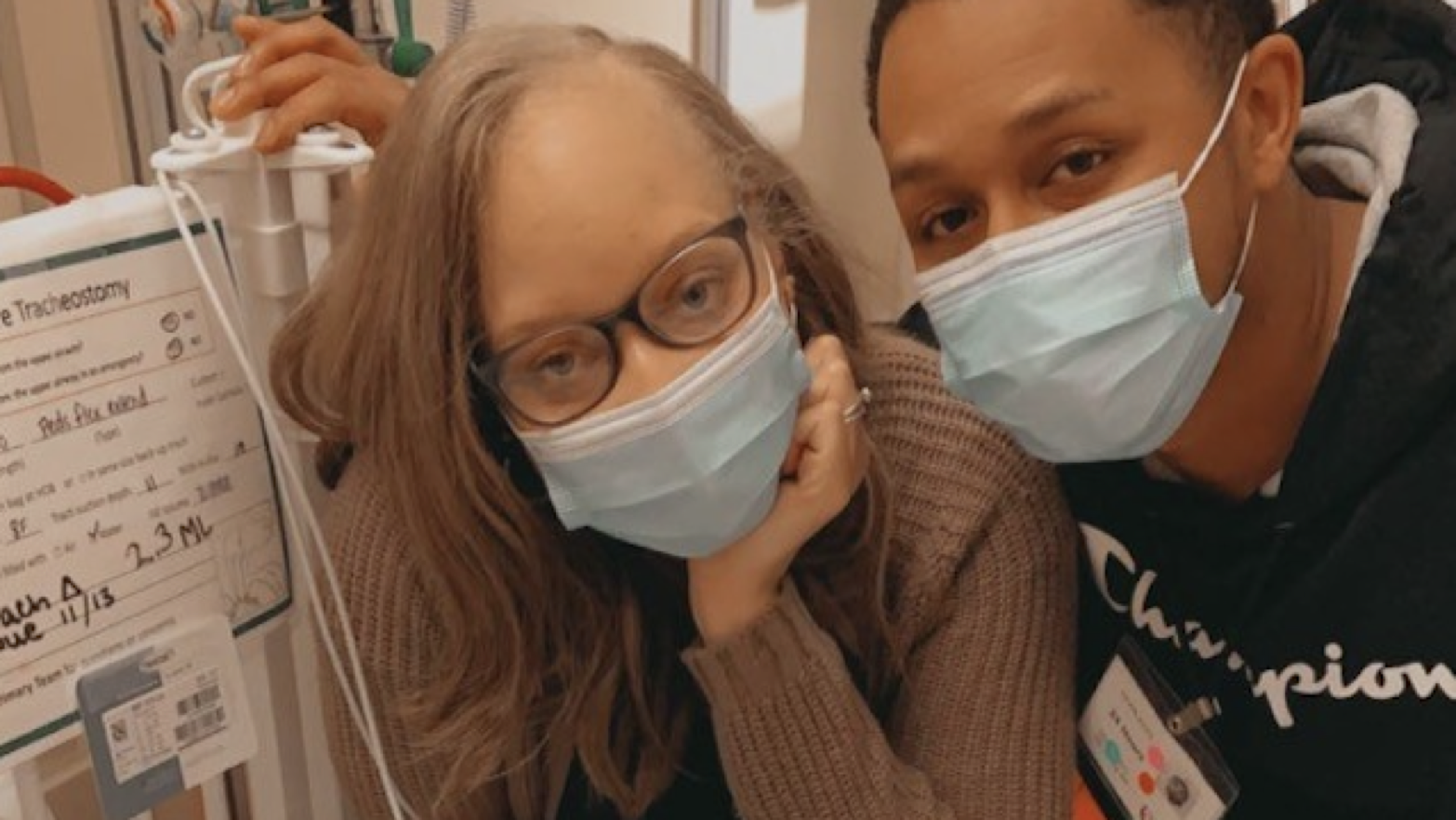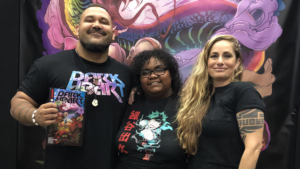Kadijah Keys didn’t need a cape to become the hero her baby needed.
The birth of her twin sonsat 22 weeks — and thenthe death of one newborn over a week later — altered the 28-year-old Ohio mom’s life in an unexpected way.
When a shortage of home care nursesprevented Keys from taking home her son Amir after several months of hospitalization, Keys — who once planned on becoming an FBI agent — shifted gears:She decided to enroll in nursing school.
“I was just like, ‘if nobody else can do it, I can do it and I’m just going to have to try to make it all work,’” Keys told USA TODAY.
Keys is set to graduate from Hondros College of Nursing in Ohio this September. She made the dean’s list last semester and plans to become a NICU nurse and parent liaison.
She wants to use her knowledge to support her son Amir through his ongoing health issues. Today, the 2-year-old breathes with the aid of a tracheostomy and ventilator as a result of a brain injury.
“Once I get my degree, I will be able to care for Amir and won’t really have to rely on everybody around me,” she said.
Amir “has definitely allowed me to feel like my life has a real purpose,” she added.
‘The scariest experience ever’
Kadijah and her husband,Kevin, waited eight years to have children. Doctors said Kadijah Keys’ lupus meant getting pregnant could prove difficult. After briefly contemplating surrogacy, Keys decided not to go that route.
“Something told me that I didn’t need to,” Keys said. Nine months later, she became pregnant with twins.
“Everything was perfect, there were no issues,” she said of the pregnancy up until the 21-week mark.
In November 2020, Keys sneezed on her drive to work as aprison system employee. Her water broke. She went to Miami Valley Hospital in Dayton, Ohio, where they told her there was nothing they could do. If they delivered the babies at that time, doctors said they wouldn’t be able to save them.
“I broke down,” Keys said.
She was sent home only to be awoken by excruciating back pain the next morning. Keys was rushed to the University of Cincinnati Medical Center, where the twins held on until the 22-week mark — the point at which doctors were able to begin delivery.
“It was the scariest experience ever,” Keys said. “So much uncertainty, and doctors asking if you do or don’t want to save your kid.”
The preterm babies only stood a 1% survival chance, possibly dying during labor or being born with traumatic brain injuries, she said.
On Nov. 8, 2020, Amar’e Keys was born weighing 15 ounces. Three days later, his twin, Amir, came into the world weighing one pound. Amar’e died 13 days after birth on Nov. 21.
“I never got to hold him until he passed away,” Keys said.
‘DRIVE-BY’ COMPLIMENTS: Kindness-focused coffee shop hits unsuspecting pedestrians with positive messages
Amir kept fighting. He survived an emergency surgery at Cincinnati Children’s Hospital — a procedure not normally done at the hospital on babies younger than 23.5 weeks, Keys said. He spent 636 days in the hospital.
“Not many kids spend over a year in the NICU,” his mother said.
Since then, the child has undergone five surgeries, including four major procedures within a five-day span, Keys said. Amir was diagnosed with volvulus, a condition causing the intestines to twist around itself and obstruct the bowel.
“Volvulus can leave somebody brain dead because it cuts off blood supply to every major organ,” Keys explained. “He still fights his gut issues, but he definitely has improved significantly.”
‘I feel like a superhero for him’
When the time came for Amir to go home, a nursing staffing shortage left the family waiting seven months for home care.
In August, when the family left the hospital, there were seven nurses who provided home care to Amir, which includes handling his feeding tube, medication, cleaning, getting him to and from appointments with his parents, tracheostomy care and providing overnight fluids.
By December, the Keys were down to two nurses who came to their home.
“We’re approved for 112 hours a week, but due to the nursing shortage, we currently receive about 60 hours a week,” Keys said.
Cincinnati Children’s Hospital didn’t immediately respond to a request for comment.
Health care burnout and caregiver fatigue might have contributed to the shortage, said Sarah Wandstrat, the assistant director of nursing at Hondros College who is also Keys’ instructor.
“We have increased expectations on nurses and health care providers without a decrease in patient load or an increase in pay,” Wandstrat told USA TODAY.
Wandstrat described the soon-to-be nurse as a hard worker in spite of the struggle to balance her new career endeavor with caring for Amir.
“I think it is really tough, but she does very well at it and she’s dedicated,” Wandstrat said.
Keys and her husband have made a mission of learning all there is to know about Amir’s health, medication and equipment. Amir, who celebrated his second birthday in November at home, occasionallystill has to spend time in the hospital, as he did while his mother prepared for her finals.
“It’s really due to the team trying to find a balance with him,” Keys said of his recent hospital stays. “He admits back into the hospital for five days or so because he might not like this (treatment) at that moment, so they’d have to change that.”
The mom’s journey of stepping up to be a nurse at home for Amir makes her feel like a “superhero,” Keys said.
“And he’s a superhero for me.”




